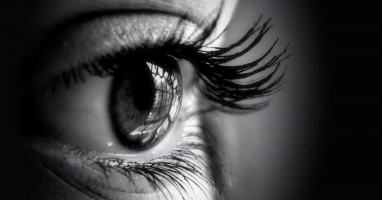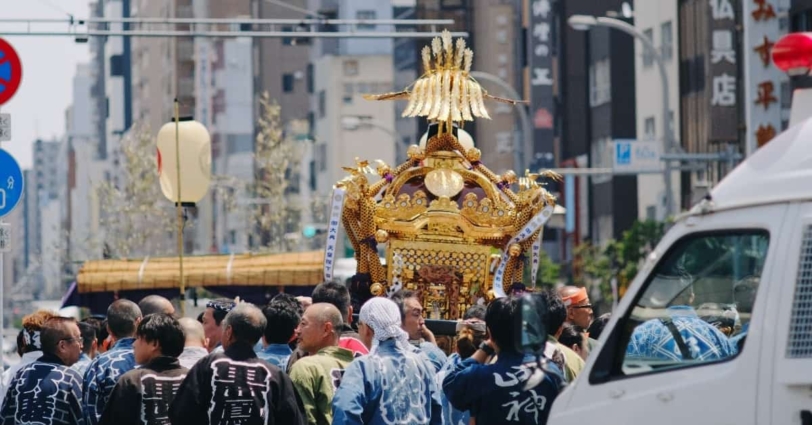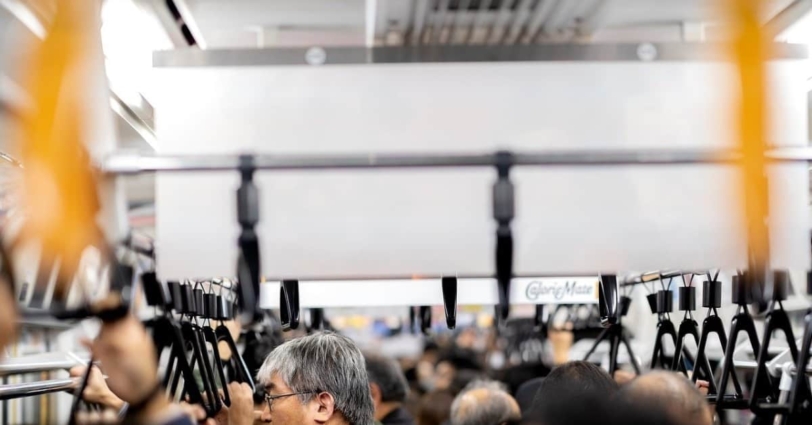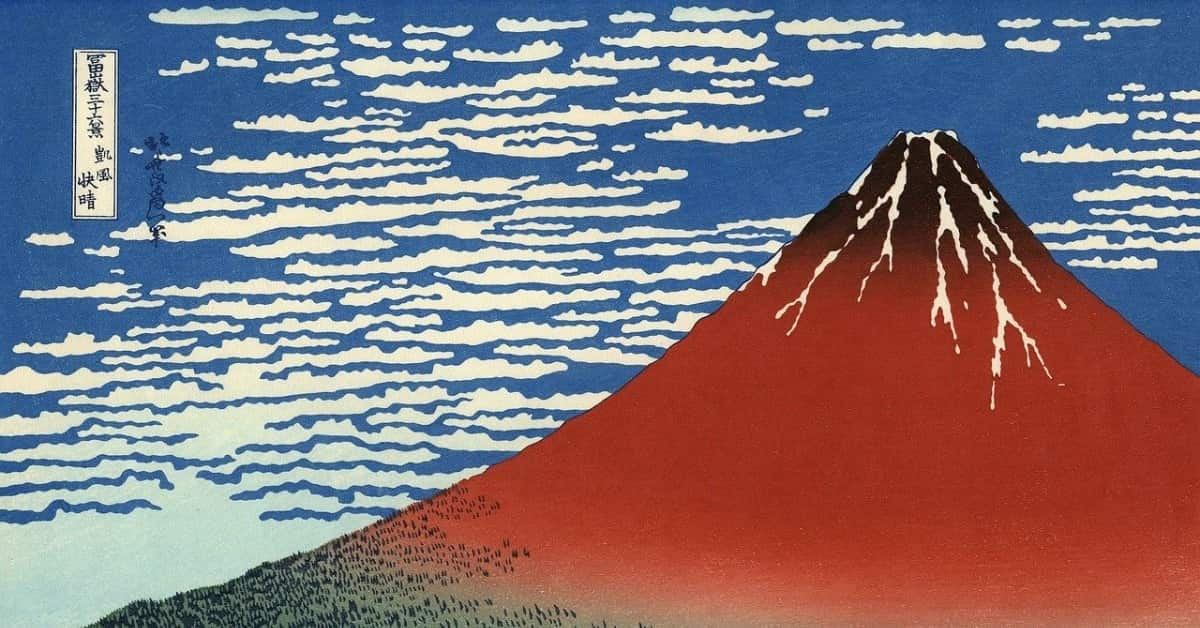I wrote this article in Japanese and translated it into English using ChatGPT. I also used ChatGPT to create the English article title. I did my best to correct any translation mistakes, but please let me know if you find any errors. By the way, I did not use ChatGPT when writing the Japanese article. The entire article was written from scratch by me, Saikawa Goto.
Introduction
Movies and books covered in this article

Three takeaways from this article
- In Japan, society serves as a judge of what is right and wrong, which serves as a deterrent to wrongdoing.
- We can understand the difference between “reformation” and “YONAOSHI (Japanese-style reformation)” through the solution of the “women-only carriage.”
- In Japan, there is no tension caused by religious conflicts.
Self-introduction article


Published Kindle books(Free on Kindle Unlimited)
“The genius Einstein: An easy-to-understand book about interesting science advances that is not too simple based on his life and discoveries: Theory of Relativity, Cosmology and Quantum Theory”
“Why is “lack of imagination” called “communication skills”?: Japanese-specific”negative” communication”
The quotes in the article were translated using ChatGPT from Japanese books, and are not direct quotes from the foreign language original books, even if they exist.
Is Japan a Better Country Than France?
The Argument and Author’s Profile of This Book

First, let’s quote a conclusion-like sentence from this book.

However, even considering some improvements, what these statistics show is that Japanese people are just as depressed, and sometimes resort to violence, as French people. Nevertheless, as a community, society, and nation, they seem to be more united than France. Is this really a fact, and if so, why?

As Japanese people living in Japan, you might feel that France is a more “advanced” country than Japan. After all, it’s the country where the “French Revolution” took place and it has a high awareness of human rights. As a democracy, isn’t France much more sophisticated than Japan?
However, the author, who is a French person living in Japan for more than 20 years, thoroughly compares France and Japan and argues that despite some aspects that may not make sense from a Western perspective, Japan is ultimately a country that is doing well overall.

There seems to be a feeling behind this.
We (*French people) might be undermining the power of the state by waving our freedom too much.
I will gradually touch upon this topic.

Now, it might be a bit long, but I’d like to quote from the translator’s afterword at the end of this book to introduce who the author of this book is.
The author, Jean-Marie Bouissou, was born in Paris in 1950. He is a historian specializing in modern Japan and a graduate of France’s prestigious École normale supérieure (ENS). In 1975, he came to Japan for the first time to teach at the Lycée Franco-japonais de Tokyo (now the Lycée français international de Tokyo) until 1979. After that, he taught at various famous universities in Japan, including the University of Tokyo, and published numerous books on Japanese politics and economic policies. From 1982 to 1984, he worked as a researcher at the Institut français de Tokyo and then became the director of the Institut français du Kyushu from 1984 to 1989. In 1990, he returned to France to take up the position of directeur de recherche chez Sciences Po, another prestigious Grandes Écoles. He acts as a bridge between Japan and France’s universities, teaches at various universities, and was appointed Sciences Po Representative in Japan in 2013, where he still is. He has lived in Japan for over 20 years and during that time has conducted a wide range of research, from Japanese politics, economics, society, and diplomacy to manga and pop culture. After returning to Japan, he has expanded his fieldwork by studying women’s and childcare issues through his Japanese wife and children.


By reading this book, you can see that the author has involved himself quite a bit in Japanese life. He has had quite a variety of experiences, such as having to work very hard at a kindergarten because of the rather complicated tasks required of him, or having once carried a portable shrine at a local festival. The story that “I was once asked to write an appraisal for yakuza” is also somewhat unusual.

Of course, there are some parts that may seem off to Japanese readers. If this book were originally made for Japanese people with Japanese editors, those discrepancies would have been ironed out in the production process. However, since this book is a translation of a book originally written for French readers, those discrepancies would remain.
Despite that, I felt the book is filled with sharp observations and insights about Japan to the extent that those discrepancies seem like minor issues.

In Japan, “Society Decides What is Good or Bad”
The claim that “society decides what is good or bad” was the most convincing argument in this book for me. According to the author, it is because of this social norm in Japan that, despite some confusing aspects, things generally work out well.

The author first touches on the difference between “freedom” in France and Japan. The French Declaration of Human Rights states:
Freedom is defined very broadly as a “natural right that never disappears” (Article 2) and as “anything that does not harm others” (Article 4). Only “socially harmful acts” are legally prohibited (Article 5).
In other words, in France, as long as it is not a “socially harmful act,” they can do whatever they want. This is exactly what “French freedom” is all about.

This book also covers the topic of Japanese celebrity, which has been the subject of much controversy due to adultery, drug possession, and verbal abuse. Afterwards, it says,
None of these reports would be punished in France.
Adultery, drug possession, and verbal abuse are not considered “socially harmful,” so it’s considered a matter of personal freedom. This book presents examples from France, such as the following episode:
Because Jean-Marc Morandini, a big-name French TV host who caused a scandal for engaging in underage prostitution, was not prosecuted, he has continued appearing on his flagship program without shame by receiving support from the TV station president.
While I may think that “adultery” is something they can do as they please, I cannot say the same for “underage prostitution.” The French concept of “freedom” is broader than I thought. The book even includes as follow.

In France, such things do not contribute to social solidarity. This is because the emotional and sexual aberrant behavior of politicians has traditionally been seen as part of their duties.
This is an outrageous statement. Is that really okay?

On the other hand, what about Japan?
In Japan, freedom is not a natural or absolute right. The Constitution does not provide any overall definition. The most appropriate definition might be the “the right to be able to do anything within not to cause ‘confusion that is best avoided’ in society.” As a result, even if an act does not break the law and is not harmful to anyone in particular, it may be subject to strict conditions depending on the tolerance level of normal social norms.
I think there are many Japanese people who, like me, are fed up with tabloid TV shows and gossip magazines that cover adultery. I think it is strange that society as a whole condemns even to feel that “it’s up to the individual.” We would have to conclude that this is precisely the stance of “not to cause ‘confusion that is best avoided’ in society” that the author points out is emphasized in Japanese society.

And the author writes that these “social sanctions,” which exist as a matter of course, are creating “Japanese solidarity.”
While one could argue that the punishments they received are unreasonably harsh, these symbolic punishments contribute to raising and maintaining among all Japanese the feeling that they cannot overcome even the petty criticisms of society, let alone the law. They consequently demonstrate in an eye-catching way that misbehavior does not pay. Furthermore, gossip magazines contribute in their own way to Japanese social solidarity.
Indeed, that’s right. I don’t like the trend of “the price of fame,” which means that celebrities are more heavily criticized for their wrongdoings, but it can also be said that such a trend keeps misconduct within certain bounds.

Especially in modern times, there are increasing numbers of “celebrities” who belong to different categories than traditional entertainers, such as YouTubers and Instagrammers. These “celebrities” might refrain from committing wrongdoing because they know that the punishment would be severe, which can contribute to reducing wrongdoing by preventing the idea that “even celebrities are doing it.”
The unconvincing feeling never goes away. However, I feel that Japan might be better off than France where someone can engage in underage prostitution and still appear on TV.

The author argues as follows:
In Japan, the issue of good and evil is decided by society according to the situation, and it has become one of the important factors of the national identity.
Therefore, Japan’s unique social norms naturally act as a stopper, leading to a good direction.

French Women’s Reaction to the “Women-only Carriage”
After reading this book, what I strongly felt that “I see what he means” is the description of “women-only carriage.”


In Japan, there are often measures taken to separate women as a countermeasure against sexual harassment, not only on trains, but also in other places.
The author expresses dissatisfaction with these measures, but also shows some understanding.
However, when looking at where it is currently being implemented, it seems that Japanese women overwhelmingly support this measure.
While I still didn’t understand what the author meant at this point. Because I have thought the “women-only carriage” was a practical solution and not a bad thing.

However when talking about measures like these in Japan to French women, they would react like this.
When I tell my female French friends about this, most of them shout in opposition. They say, ‘The solution is not to confine women to places where men can’t reach them, but to teach men to respect women! Women-only carriages are a form of discrimination against women in a different guise.’ From a fundamental perspective, I agree with them.
I understood and was convinced by their reaction.

Of course, I also understand that in principle “women-only carriage is not a fundamental solution”.
However, it is difficult to completely eliminate “chikan” (sexual harassment) in reality. So, I believe that separating women as a temporary measure is not a bad idea.

I may not fully understand the feelings of Japanese women as a man, but I believe that most of them probably do not criticize the idea of “women-only carriage,” even if they are not completely satisfied with it.
However, it seems that in France, a country that is sensitive to human rights, “women-only carriage” is considered “discrimination.” Although I agree with this view in principle, I also feel it’s tough that it’s not even recognized as a temporary, practical solution.

Regarding this point, the author contrasts the French approach of “reformation” and the Japanese approach of “cure” referring to the Japanese word “YONAOSHI”.
When it comes to social issues, the approaches of the French and the Japanese are completely opposite. The French wish to change things, while the Japanese hope for a cure. We French fight to completely eliminate or re-educate any harmful influences in order to liberate society.
On the other hand, the Japanese use verbs similar to fixing machines, correcting mistakes, treating illnesses, and removing bad habits. And they refer to rebuilding “life, society, and the world” as rebuilding “YO” (which means “life, society, the world” all rolled into one). It means not evil, but rebuilding a dysfunctional community as a whole, and not destroying it, but restoring its vitality in order to start anew.

Certainly, the author’s expression here is convincing. Regardless of whether the approach is the best or not, Japanese people tend to choose “realistic symptomatic treatment”.
At times, this stance may give a sense of “No, we must eliminate the fundamental cause or we won’t solve the problem”. However, in reality, there are often many difficulties in finding a fundamental solution. Therefore, I believe it’s reasonable to start by saying, “Let’s first respond within a realistically possible range.”

However, in France, there seems to be a strong pressure of “problems must be fundamentally solved!” which is indeed a wonderful attitude. However, it is also a hard road. Because the road to a fundamental solution will take time, and the path to that solution will often bring more difficult than it was before. Still, it seems that the French choose the path of “struggle.”
In the long run, it is natural that aiming for a fundamental solution is often the best choice. However, it would also be difficult to live in a society that says “only fundamental solutions are allowed!” at all times. In this regard, Japan may not be worse off compared to France.

Religion is Not a Standard for Good and Evil
The author says that Japan is free from a certain kind of tensions compared to the West, in large part because of the difference in the “role of religion.”
In the West, religion becomes a standard for good and evil. That’s why conflicts between different religions always arise. However, as mentioned earlier, in Japan, the only entity that can decide good and evil is “society”.

Japan is a country where more than half of its citizens answer “no religion” when asked about their beliefs, yet various religions are still intertwined in Japanese society. However, it is said that the reason why there are no religious conflicts like in Western countries is because of a common understanding that:
In Japan, society takes on the role of god.
I felt that’s right. Certainly, if religion were to determine good and evil, conflicts would never be resolved and such a society would always be on edge.

Furthermore, in relation to the discussion on religion, the separation of church and state is also mentioned. In Japan, it is a principle that church and state should be separate, but as “everyone knows,” it is not always upheld. Still, there are not many people who openly question it. However, in France, the following things are said to happen:

Citizens have gone as far as taking legal action and appealing to the government to remove scenes of Christ’s birth from a city hall or crosses from a public square.
I see. This is serious. Perhaps due to the societal belief that religion determines good and evil, I find it a bit troublesome to live in a society where conflict arises unless “separation of church and state” is strictly enforced.

Furthermore, there is also a passage that reads as follows:
However, Japan is free from this kind of tension. During the New Year, police boxes in the area put up Shinto decorations without any issues since it’s a customary practice. On Buddha’s birthday, the supermarket I frequent sets up an offering table in the center of the store every year, and it seems like no customers are uncomfortable with it. Rather, the opposite is true. During the Obon festival, almost everyone buys a basket with fruits to offer as an offering to their household Buddhist altar. It’s worth noting that there are very few people who express dissatisfaction with this scene, claiming that their freedom of consciousness is being ignored and their right to recognize differences is being trampled upon.
The noteworthy part of this quote is the final sentence, which reads, “there are very few people who express dissatisfaction with this scene, claiming that their freedom of consciousness is being ignored and their right to recognize differences is being trampled upon.”

We probably won’t feel particularly uncomfortable seeing the whole society embrace the same atmosphere for GYOJI (event) and SHIKITARI (tradition) with religious backgrounds. Of course, if we were forced to “raise the national flag on national holidays” (such customs were once common in Japan), that would be unpleasant, but we are not actually forced to do so (although some regions may have such requirements).
However, in France, even if they are not forced to do so, people are dissatisfied with the situation where “specific religious GYOJI and SHIKITARI naturally color the atmosphere of society,” claiming that their freedom is being violated.
This is a serious matter.

Also, the author questions even the point that “Japanese people do not feel ‘forced’ to do so.” Japan has seasonal events every month, and the author is surprised that Halloween ends on October 31st and is magically replaced by Christmas on November 1st. The author writes that this atmosphere in society functions as “pressure.”
The trick of holding festivals every year leads Japanese people to anticipate their own habits and sensibilities. Socially and commercially, continuous festivals have become as cramming-oriented as school time. As a result, pressure is placed on what becomes the center of interest and action, taking away free time that individuals can use, compared to France. This pressure forces the image that all Japanese people must do the same thing at the same time. Those who are not interested feel isolated and are further considered unsuitable for society, which becomes a disadvantage in both society and work.


As a Japanese person, we don’t have to actively participate in events like Halloween, Christmas, or Valentine’s Day to be considered “socially unfit”. However, this may vary depending on factors such as the difference between urban and rural areas, or differences based on age and religious customs such as Buddhism and Shintoism, so it can’t be said for certain.
Regardless, even if we Japanese don’t feel like it’s being forced upon us, it seems that the French may feel like it’s being forced upon them due to their strong emphasis on individual rights.

Japanese People Who Can’t Answer “YES” to the Question “Are You Happy”?
Finally, I would like to bring up an interesting topic, not necessarily a comparison with France, to conclude.
(●●●●KANRENKIJI)the-murderer-is-there
It seems to be a trend in Asian countries, not just limited to Japanese people, that many cannot answer “YES” when asked, “Are you happy?” I also feel that I wouldn’t be able to answer “YES” if asked the same question. Regarding this point, the author writes as follows:
Generally speaking, Asian cultures do not see individual happiness as a stable state or a final goal in life.

The fact that “do not see individual happiness as a stable state” means that for Japanese people, “happiness” is a “moment” or a “point.” That’s why when asked “Do you have moments of happiness?” even Japanese people can answer “Yes.”
I can understand this when it is said. If someone asked me “Do you have moments of happiness?” I think I would also answer “YES”.
Regarding the results of a survey in which people were unable to answer “yes” when asked, “Are you happy?”, people sometimes said, “Japanese people are less happy.” But I was not very convinced by such discourse. However, when he points out that “Japanese people perceive happiness as moments,” I feel that it is true.

I feel that an outside perspective is still important in the sense of being able to gain these kinds of discoveries.
Conclusion
I cannot agree with everything written, but I feel this work is very interesting because it deeply understands the Japanese national character and provides a comparative analysis with France. Although there are many complaints about Japan as a country, as the author points out, it is a very appreciated work for Japanese people to feel that, overall, Japan is not worse than France.

Published Kindle books(Free on Kindle Unlimited)
“The genius Einstein: An easy-to-understand book about interesting science advances that is not too simple based on his life and discoveries: Theory of Relativity, Cosmology and Quantum Theory”
“Why is “lack of imagination” called “communication skills”?: Japanese-specific”negative” communication”







コメント